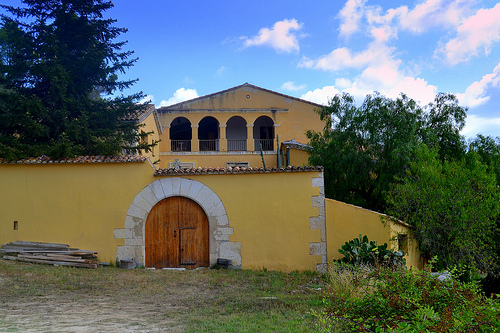Spain is an attractive destination to live and work. The country provides a balance between history and modernity, and expats are also able to enjoy a more relaxed lifestyle compared to many other European countries.
An advantage of living in Spain, especially for those who have decided to rent property, is that Spanish law is protective of the tenant. Landlords will find it hard to evict a tenant, even in case of non-payment of rent.This is mainly due to the slow pace of court proceedings, and also because the law states that the non-payment of rent must continue for an extended period of time before the tenant can be evicted.
If a landlord resorts to means such as changing locks or restricting the tenant from using the property, this is considered harassment and the landlord may be subjected to a fine or prison sentence. A landlord that enters his own property without the prior permission of the tenant may also be charged with trespassing.
If a bank repossesses a property due to a landlord’s bankruptcy, the tenant still need not worry, as he or she will retain the right to live in that property. If the former or new owner offers a new financial settlement, the tenant can choose whether to accept it or not.
Here are some other points expats need to know before renting a property in Spain.
Lease agreement
The lease agreement, or Contrato de Arrendamiento, must have the following provisions:
– Landlord’s and tenant’s identification details
– Property address and description
– Term of the contract
– Rent amount and terms of payment
– Details of property expenses and who will be paying them
– Late payment terms
– Subletting terms
– Jurisdiction
– Any further legal provisions, agreed upon by both parties
Spanish rental contracts are recorded at the Spanish Property Registry or Registro de la Propiedad.
Term of the contract
A property may be rented on a short-term or long-term basis. This distinction needs to be made, as fewer rights are accorded to short-term tenants.
According to a short-term rental contract, the tenant must vacate the place once the contract expires. These contracts usually apply to holiday and seasonal homes. Long-term rental contracts are valid for five years, and automatically renewed for one to five years. Landlords are required to adhere to renewals, unless other conditions were previously specified in the contract. If the contract allows a landlord to recover the property after five years, a month’s notice must be given to the tenant before the expiry date.
Deposit
Once a rental contract is signed, a tenant must pay a deposit or fianza to the landlord. This amount is equal to a month’s rent and guarantees that the property will be returned to the owner in the original condition. Assuming the tenant has kept the property in a good condition, they will receive this amount back when they move out.
Rent
The landlord and tenant must mutually agree upon the rental amount, and this amount is usually paid on a specified date, as per the contract. The tenant must receive a receipt upon paying the rent; this serves as proof of payment.
Extra payments
Community fees are usually the responsibility of the landlord, unless other terms are specified in the contract. Other expenses like gas, electricity, water and telephone bills are taken care of by the tenant.
Inventory
It is important for a tenant to check the inventory provided by the landlord. If any item from the original list is not returned as specified, the landlord can deduct it from the deposit. If your landlord does not provide an inventory, it is prudent to make your own and have the landlord sign it.
Repairs
Repairs that are required to keep the property in a habitable state are the landlord’s responsibility. As a tenant, you will have to pay for any repairs arising from daily use. If maintenance work needs to be carried out urgently, the tenant can undertake it after informing the landlord. The tenant must be reimbursed for these repair costs.
Disputes
In some cases, disputes may arise between the landlord and tenant. In Spain, issues relating to rental properties are handled through ordinary civil proceedings (procedimiento civil ordinario).
Have you rented a property in Spain? How did you find the experience? Let us know in the comments.

